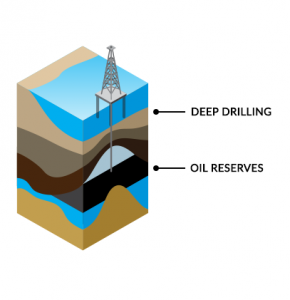All Categories
Featured
Table of Contents
Geophysical Surveying And Mapping Services (Geology ... in Floreat WA 2022

Other possible geophysicist majors that aren't geophysics or geoscience include: Atmospheric sciences and meteorology Chemical and physical oceanography Earth science Environmental science Hydrology and water resources science Products science By making any geophysicist degree, and by taking the essential geology courses, you ought to get approved for an entry-level position as a geoscientist or geophysicist.
Ultimately, trainees need to learn: a branch of geology that takes a look at the various elements of minerals, including chemical composition, internal crystal structure, and physical residential or commercial properties. the study of rocks and the procedures and conditions that form and change them with time. There are a couple of subdivisions in this branch of geology, consisting of igneous, metamorphic, and sedimentary rocks.

This field analyzes structural rock functions such as cleavage, faults, joints, and little folds. They should likewise discover the computer abilities required to: evaluate information create digital models and maps operate geoscientists' software application Trainees ought to likewise benefit from all chances to acquire real-world experience. Ambitious geophysicists should expect to spend time knowing: in the class in the field in laboratories Undoubtedly, abilities taught in the class are very essential for aiming geophysicists.
Geophysicist Job Description: Salary, Duties, & More in Maida Vale Australia 2021
Geoscientists invest a lot of their time outside when working in the field, so they must have "outdoor abilities" like camping and running boats, airplane, and other automobiles. Since they invest so much time in remote locations, it's important that geophysicists likewise have the physical endurance to carry required equipment on their walkings to areas of study.
The task provides: a high median and leading profits a high rate of individual fulfillment amongst geophysicists low work tension positive task outlook More information on revenues capacity and job outlook is detailed below. For trainees aiming to land an entry-level role as a geoscientist or geophysicist, it takes four years, or the time needed to finish a bachelor's degree in geophysics or a related discipline.
Some research study positions in geophysics need postgraduate degrees. If you prepare to teach at a college or university, you should make a Ph. D. in geophysics or a related field. The time it requires to make a Ph. D. differs by institution and program, however it usually takes 4 to 6 years beyond the bachelor's degree.
Career Opportunities In Geology in Kiara WA 2020
The majority of employers require prospects to have a bachelor's degree in geophysics or a carefully related discipline for all entry-level positions. As an outcome, there's no method around the degree requirements for ending up being a geophysicist.
Currently, 31 states require licensing for geologists, although licensing is not always required, particularly for entry-level work. The states that do problem licenses utilize the Principles of Geology Test (FGE), which is administered through the National Association of State Boards of Geology (ASBOG). Now that you understand which degree for geophysicist jobs you require, you'll require to land a job, and it is very important to discover just how much money you can make in this career.
According to BLS, the mean annual wage for geoscientists is $93,580. According to BLS, particular markets provide higher salaries for geoscientists, and in some cases, they offer higher-than-average earnings.
Geophysical Surveying And Mapping Services (Geology ... in Mindarie Oz 2021
In truth, mining, quarrying, and oil and gas extraction provides over $32,000 more annually than the typical annual wage for this profession. The federal government, too, offers over $10,000 more in profits than the national average for geoscientists. In addition to industry type, geographical place can greatly impact profits for this occupation.

The top-paying states and their yearly mean salaries, according to the BLS, include: Texas $166,720 Oklahoma $149,630 Pennsylvania $120,590 Hawaii $120,130 Colorado $107,260 These 5 top-paying states offer much greater wages than the average for this profession. In truth, wages for geoscientists in Texas are over $73,000 higher than the national average.
It needs to come as no surprise that most of these high-paying locations remain in Texas and Oklahoma, but some are discovered in California, Louisiana, and Colorado. The top 10 highest-paying city areas for geoscientists are: Houston-The Woodlands-Sugar Land, Texas: $188,400 Tulsa, Oklahoma: $186,490 Midland, Texas: $167,040 Odessa, Texas: $147,080 Oklahoma City, Oklahoma: $145,350 Bakersfield, California: $130,080 Urban Honolulu, Hawaii: $124,470 New Orleans-Metairie, Louisiana: $121,030 Washington-Arlington-Alexandria, DC, VA, MD, WV: $120,180 Denver-Aurora-Lakewood, Colorado: $116,910 For some geoscientists and geophysicists, residing in a metro city is not as attractive as residing in a smaller sized community.
Latest Posts
What Is Geophysics And What Do Geophysicists Do? in Sinagra Australia 2023
Geophysics in Beckenham Western Australia 2022
Geophysical Survey - An Overview in West Perth Oz 2020